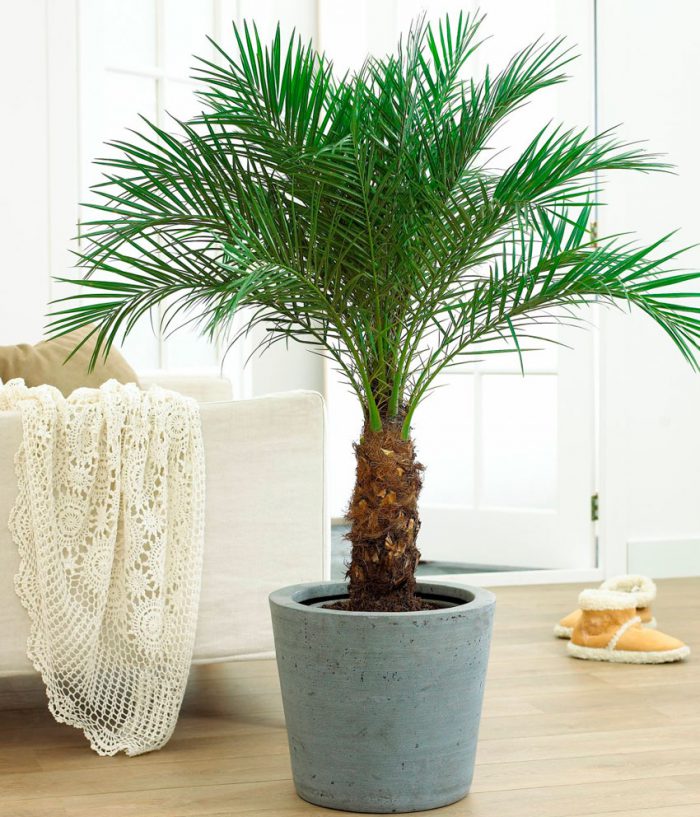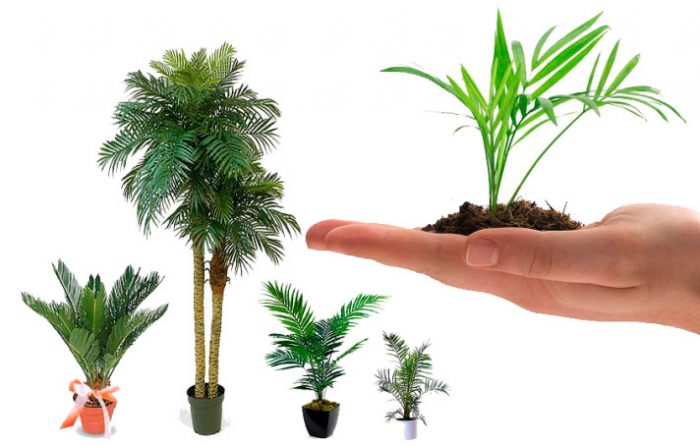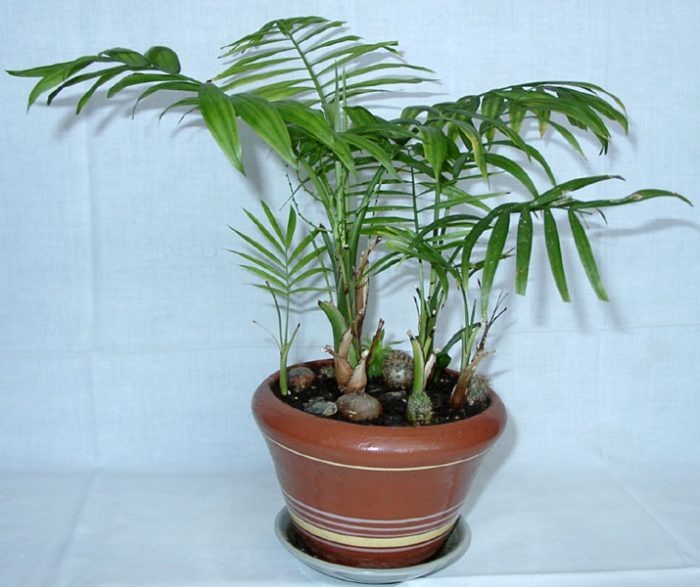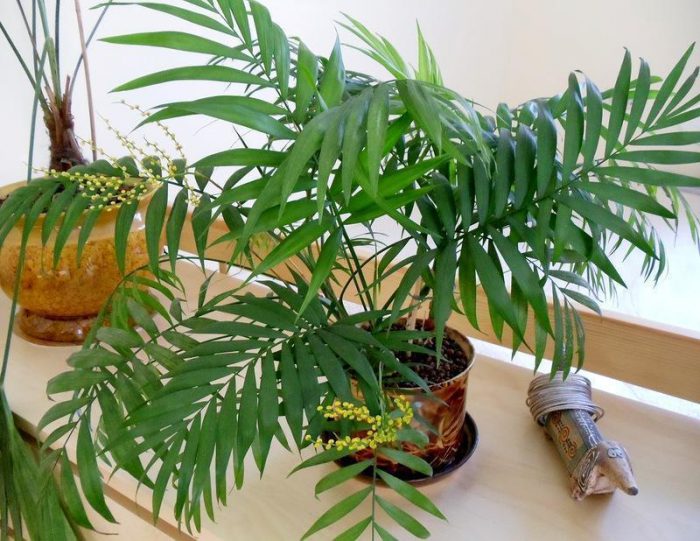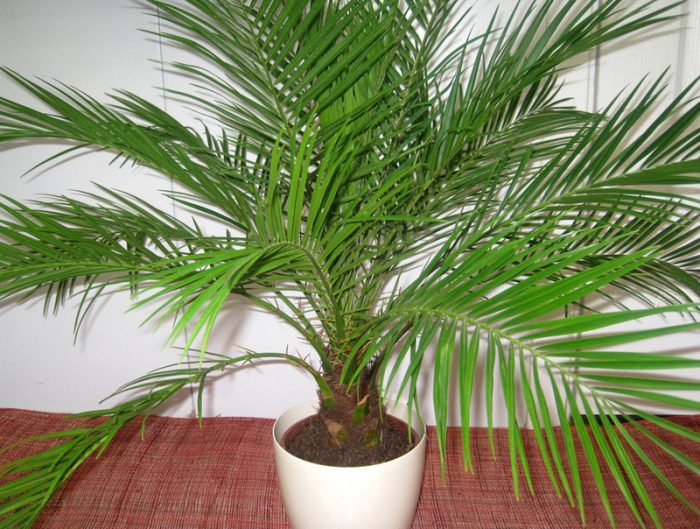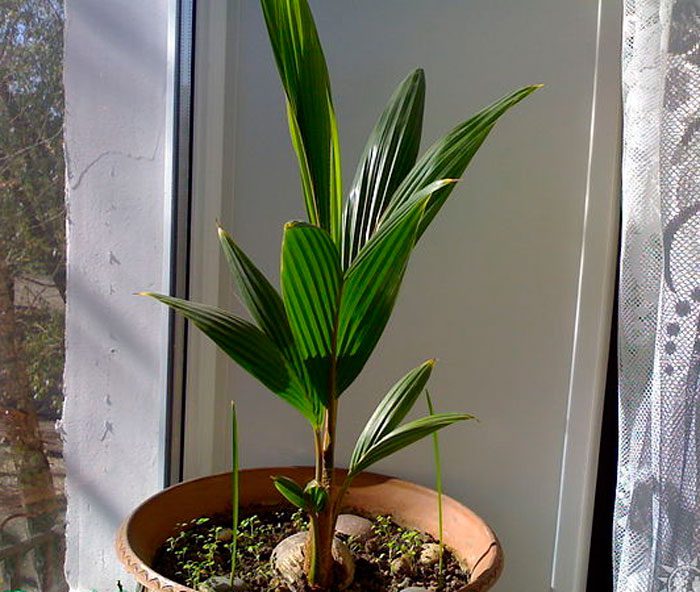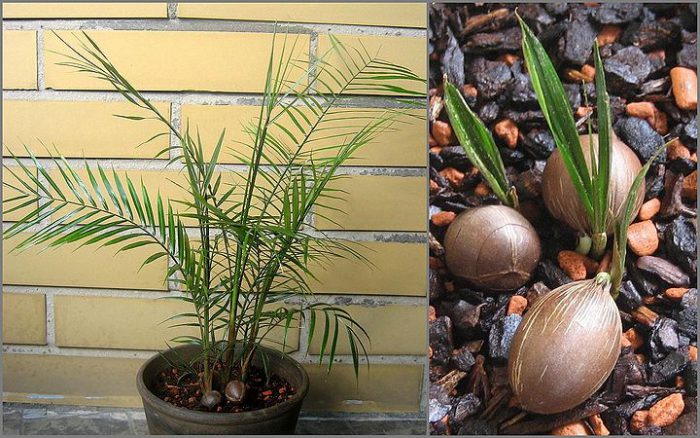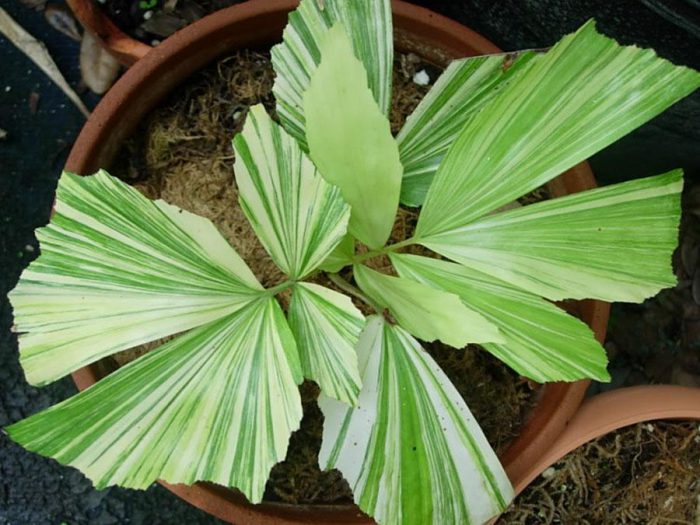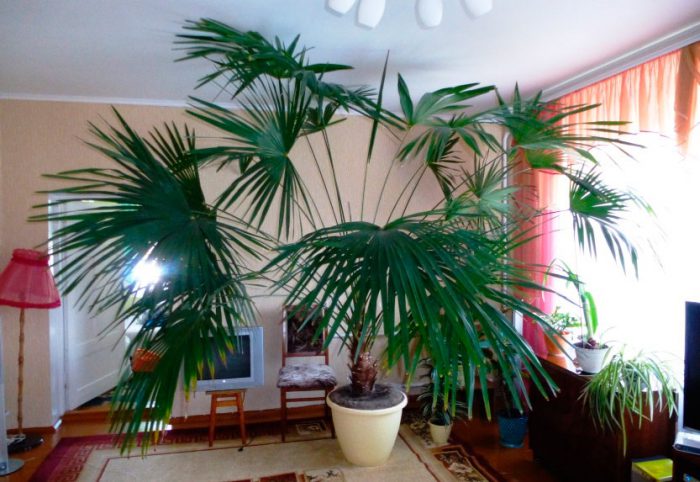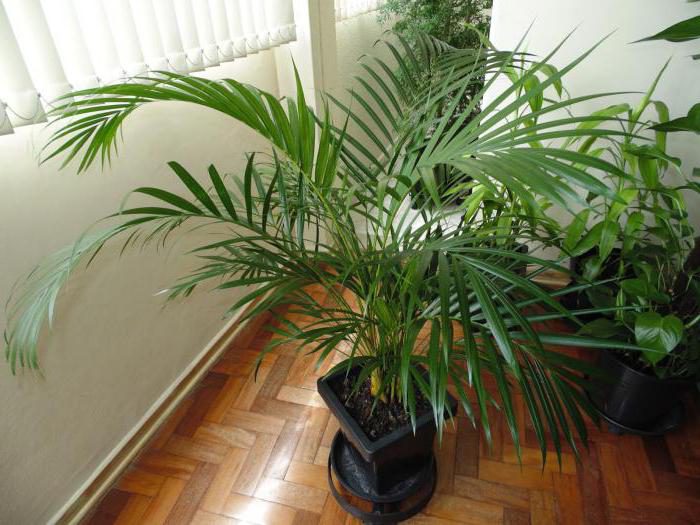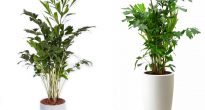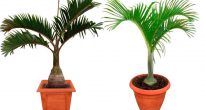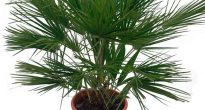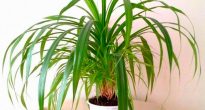Such a beautiful plant as a house palm, which has a very effective appearance, can not only decorate, but also transform any room. The palm tree is very popular with flower growers due to its unusual exotic appearance. So, she has very large leaf plates of an extremely unusual shape. However, in order for such a plant to please you with its beauty for a long time, you need to learn how to properly care for it.
Content
Types and features of indoor palms
To date, the acquisition of a large and spectacular palm tree for many people may remain a pipe dream, since the cost of such an instance is quite high. A palm tree grown in a specialized nursery can certainly become the main decoration of any home. But it should be remembered that by acquiring an already mature plant, you are at great risk. The point is that once it gets into unusual conditions, it can get sick and even die. Experienced growers advise buying small shoots or young plants. They are much easier to adapt to new growing conditions and changes in care. And they will increase the green mass over time.
The most spectacular part of this kind of plant is considered to be its leaf plates, which have an extremely unusual shape and spectacular appearance. The shape of the leaves directly depends on the species. So, the leaves can be narrow, straight, have the shape of a semicircle, etc. But it should be remembered that the leaves of palm trees in no case should be cut off. The fact is that the removal of at least one leaf plate can lead to the death of the entire plant.
But which of the many types of palm trees can be right for your apartment? You can understand this by reading the description of the most popular species among flower growers.
Features of bamboo palm
The species called bamboo palm is very popular among palms among florists. The name of such a plant is quite unusual, as is its appearance, which is also incredibly effective. Outwardly, the leaves have a certain resemblance to bamboo, due to which such a plant got its unusual name. This plant fell in love with a large number of flower growers due to the fact that it is fast-growing and easy enough to care for. The main thing is to provide such a palm tree with quite abundant watering. The following plants belong to the bamboo palm.
Neanta
This plant is the most popular among flower growers.As a rule, it is purchased in a specialized store with a very small seedling. After this palm tree is brought into the house, it is recommended to transplant it into a new pot slightly larger than the previous one. After this, neante must provide the most favorable conditions for its growth and development. After just a few years, your room will be decorated with an already mature luxurious plant. If such a palm tree has enough light and it is provided with correct enough abundant watering, then it can bloom and bear fruit. So, small yellowish flowers appear in its upper part, and then berries are formed.
Finger dates
This plant, which has a spectacular appearance and grows in the wild, is quite successfully grown in city apartments. The house plant looks like two peas in a pod like its wild counterpart, only it is smaller. When grown at home, the finger dates can reach a height of about 200 centimeters. However, its growth can be controlled, and this will not give you much difficulty. So, you just need to cut off the top of the plant in a timely manner.
Walnut coconut
Such a palm tree usually grows only in the wild. At home, or rather, in a stuffy room, it grows for about 2 years, and then quickly and suddenly dies for no apparent reason.
Coconut Weddel
Such a palm tree is quite suitable for growing at home. But in order for it to have a very effective appearance, as well as to grow and develop normally, it is necessary to provide the most suitable conditions for it. So, for this palm, it is very important to provide comfortable humidity, appropriate temperature conditions, and good illumination.
Fish tail
Such a plant has gained popularity among flower growers due to its rich color and unusual shape of leaf plates. However, this palm tree attracts not only a very effective appearance, but also a fairly simple care. So, a copy bought in a flower shop can grow and develop normally in indoor conditions.
However, just buying a palm tree and bringing it home is not enough. It is necessary to learn how to properly care for her, it is then that she will delight you every day with her exotic and incredibly beautiful appearance.
Basic rules for caring for a palm tree
Although there are a large number of types of palm trees, there are basic general rules for caring for them.
Temperature regime
Such plants react extremely negatively to heat, as well as to a draft. In this regard, for a palm tree, you should find a place in which the temperature regime is ideal for it. So, in winter, the minimum permissible temperature is 10 degrees, but in summer it should not be hotter than 16 degrees.
How to water
Do home palms need to be watered often? Such a plant reacts extremely negatively to stagnant water in the soil. To prevent it, you need to make a good drainage system. It is done quite simply. At the bottom of the container it is necessary to lay out a layer of coarse gravel or expanded clay. In the summer, watering should be plentiful, especially on hot days. In winter, watering should be moderate. But at the same time, the soil should always be slightly moistened in winter (not wet).
Illumination
This plant does not need a very large amount of ambient light. However, it should be protected from direct sunlight. The best option would be a small partial shade.
Air humidity
For normal growth and development, it is necessary to maintain high humidity. So, for this, you should often moisten the foliage from a sprayer or place an open container with water in the immediate vicinity of the palm tree. And you also need to systematically wipe the leaves with a damp, clean sponge.

